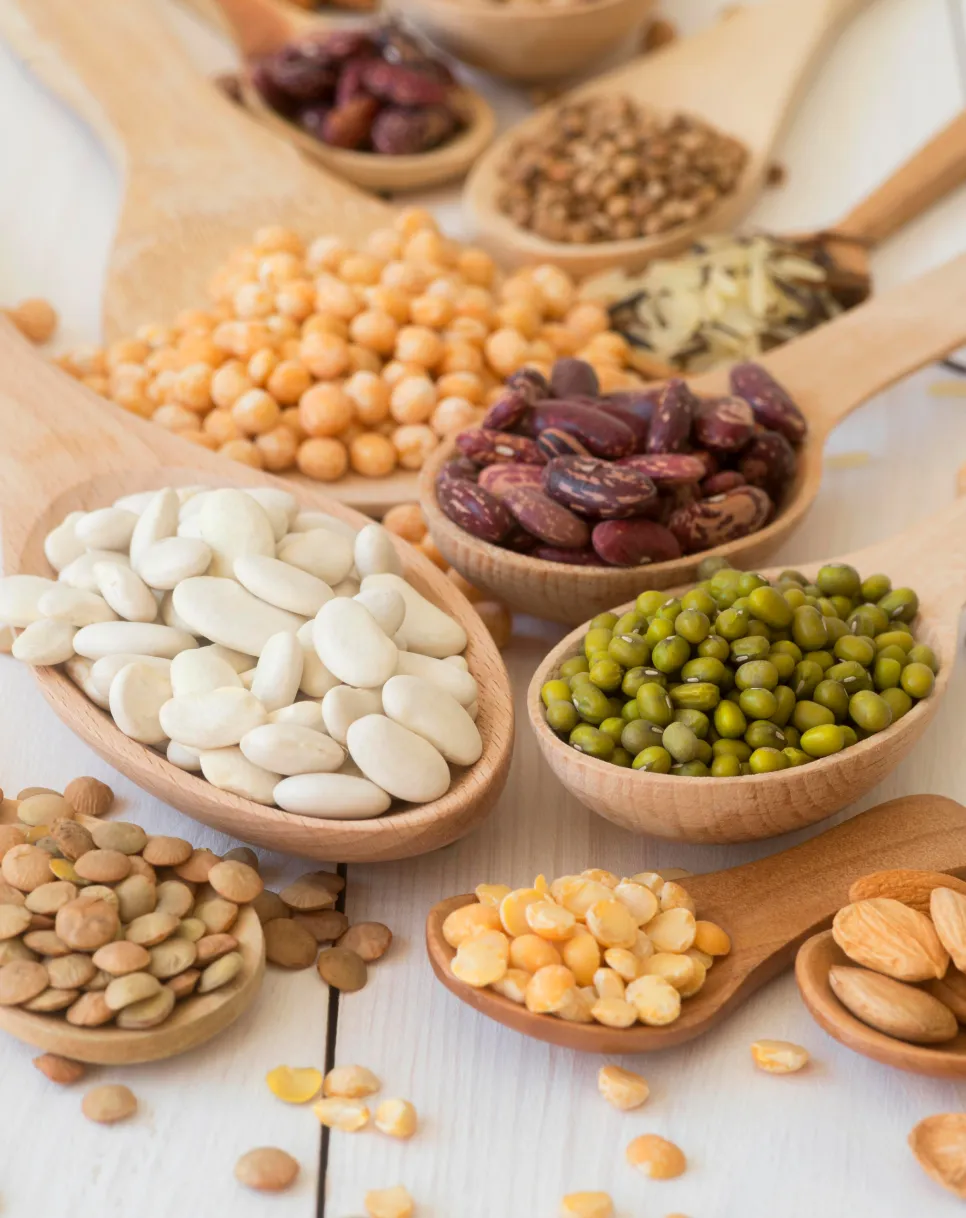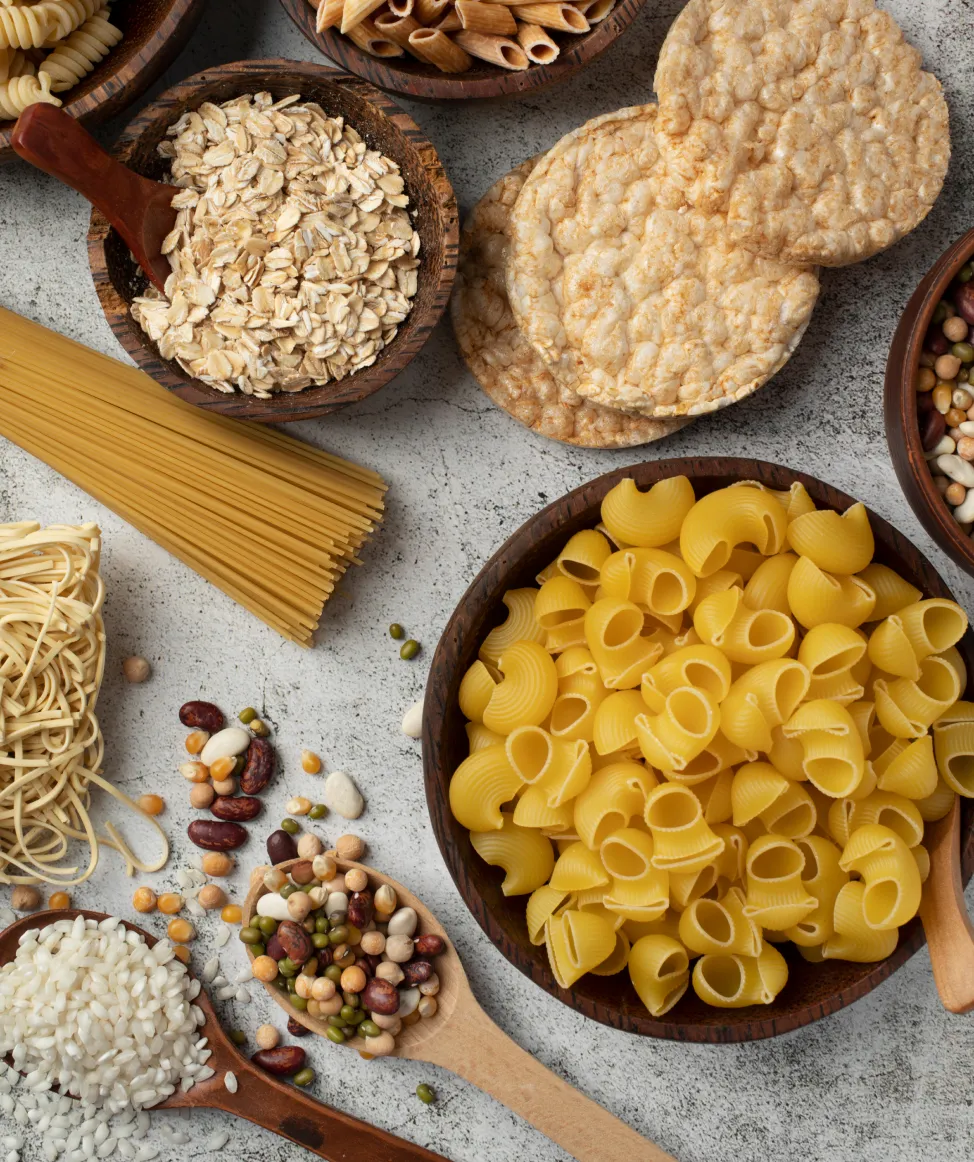Difference between pulses and cereals: a complete guide
In the food world, pulses and cereals play a fundamental role, representing two categories of staple foods that, although similar in some respects, have unique and distinctive characteristics. This article will explore in detail the difference between pulses and cereals, analysing the benefits of each for the food industry and providing useful information for choosing the best solutions for your business.
What are legumes?
Legumes are plants in the Fabaceae family, also known as Leguminosae. The most common legumes include beans, peas, lentils, chickpeas, soya and peanuts. The main characteristic of legumes is their high protein content, which makes them an excellent vegetable protein source. Furthermore, legumes are naturally gluten-free, making them an ideal choice for those who suffer from coeliac disease or follow a gluten-free diet. Legumes are also rich in fibre, vitamins (especially B vitamins) and minerals such as iron, magnesium and potassium.
Advantages of legumes for the food industry
- High protein content: legumes are one of the best sources of vegetable protein, making them ideal for products for vegetarian and vegan diets.
- High fibre content: the fibre present in legumes aids digestion and contributes to a prolonged feeling of satiety, improving the nutritional profile of food products.
- Versatility: legumes can be used in a wide range of products, from soups to ready meals, from snacks to baked goods.
- Sustainability: legumes have a low environmental impact compared to animal protein sources, contributing to the sustainability of the food industry.
- Gluten-free: their gluten-free nature makes them perfect for products for consumers with special dietary needs.


What are cereals?
Cereals are herbaceous plants of the Poaceae family, cultivated mainly for their edible seeds. Among the best known cereals are wheat, rice, maize, barley, oats and spelt. Cereals are a major source of carbohydrates in the human diet and are used to produce flour, bread, pasta, rice and many other products.
Benefits of cereals for the food industry
- Source of complex carbohydrates: Cereals are an essential source of energy due to their high content of complex carbohydrates that release energy gradually.
- Wide applicability: Cereals are used in a wide range of products, from baking to the production of pasta, breakfast cereals, snacks and beers.
- Product variety: Cereals can be processed into flours, flakes, groats and grains, offering great versatility for food production.
- Source of nutrients: In addition to carbohydrates, whole grains provide fibre, B vitamins, iron and magnesium, contributing to a balanced nutritional profile.
Difference between legumes and cereals: nutritional aspects
When discussing the difference between legumes and cereals, it is crucial to consider their nutritional properties. While legumes are rich in protein and fibre, cereals offer more complex carbohydrates. Both are essential for a balanced diet, but the choice between one and the other often depends on the specific needs of the end product and the target consumer.
Protein vs. carbohydrates:
- Legumes: As already mentioned, legumes are an excellent source of vegetable protein. This makes them ideal for products for those following a vegan or vegetarian diet, or for those seeking an alternative to animal protein.
- Cereals: Cereals are predominant in complex carbohydrates, which provide sustained energy. This makes them perfect for products that aim to provide a sustainable source of energy, such as bread, pasta and breakfast cereals.
Fibre:
Both categories are rich in fibre, but with a difference in concentration:
- Legumes: They are generally higher in fibre than cereals, contributing to healthy digestion and blood sugar control.
- Cereals: Whole grains offer a good amount of fibre, especially when they are unrefined, contributing to a balanced diet.
Applications of pulses and cereals in the food industry
Both pulses and cereals offer multiple applications in the food industry due to their versatility and nutritional benefits.
Legumes:
- Bakery products: Legume flour is increasingly used in the production of gluten-free bread and bakery products due to its high protein content.
- Ready-made products: Pulses are a staple ingredient in soups and ready-made meals, offering a healthy and nutritious alternative.
- Healthy snacks: Legumes roasted or processed into chips have become a popular healthy snack option.
Cereals:
- Bread-making and pasta-making: Cereals are the main ingredient in the production of bread, pasta and baked goods. The use of whole grain cereals is growing, responding to consumer demand for healthier products.
- Breakfast cereals: Cereals are the main ingredient for a wide range of breakfast products, from oat flakes to muesli.
- Gluten-free products: Some cereals, such as maize and rice, are key in the production of gluten-free products.
Sustainability and environmental impact
Another important aspect in the difference between legumes and cereals is their environmental impact.
Legumes, due to their ability to fix nitrogen in the soil, improve soil fertility and reduce the need for chemical fertilisers. This makes the cultivation of legumes more sustainable than many other types of crops.
Cereals, on the other hand, generally require more water and nutrients, but their large-scale production makes them an essential food to meet global demand. Integrating sustainable agricultural practices can help mitigate the environmental impact of cereal production.

Conclusion
The difference between pulses and cereals is evident not only nutritionally, but also in their industrial applications and environmental impact. For the food industry, understanding these differences is crucial in order to develop products that meet the needs of modern, increasingly health-conscious and sustainable consumers.
Discover the quality of Geovita.
Excellent cereals and legumes
for your business!
Discover the quality of Geovita.
Excellent cereals and legumes for your business!
Explore our range of top-quality cereals and pulses, grown with passion and expertise.
We are here to answer all your questions and support your business with tailor-made solutions.
Contact us today for more information!
